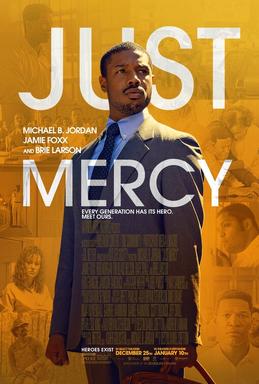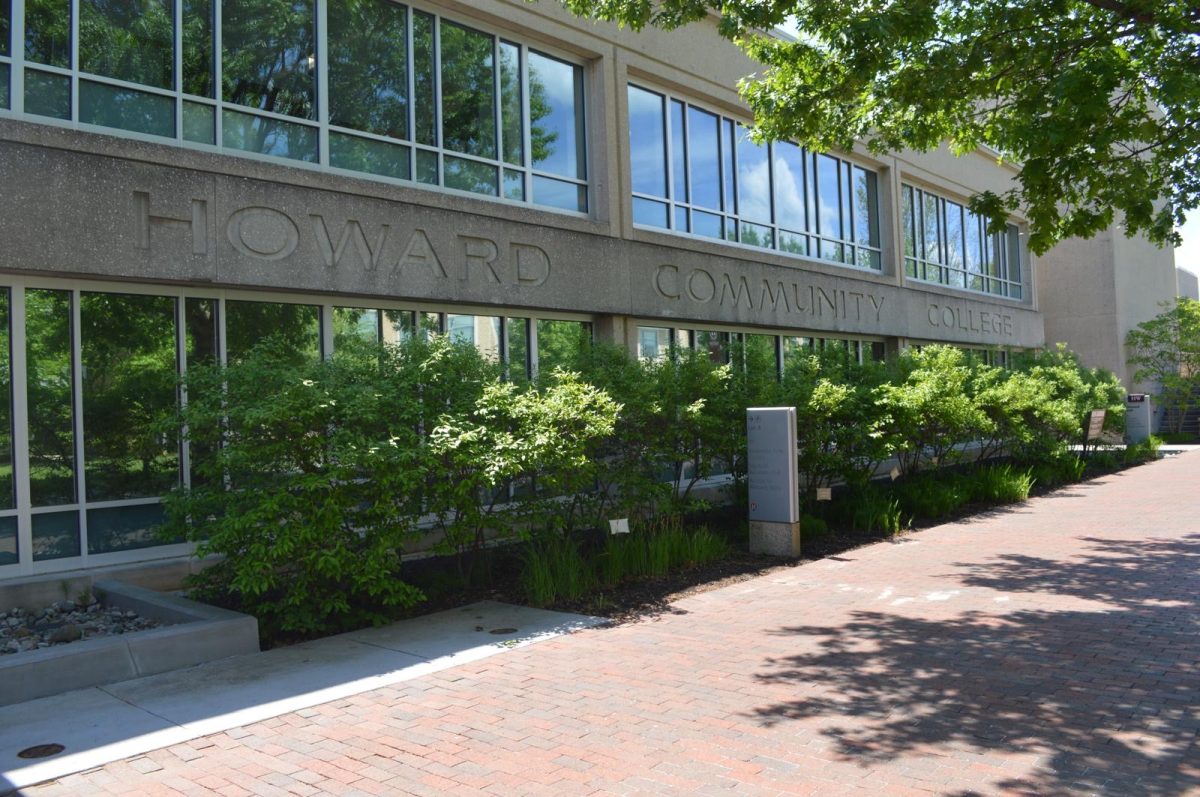“Just Mercy”: The Intersection of Justice, Hope, and Abuse of Power
March 11, 2021

Who was Walter McMillian? Who is Bryan Stevenson? Who is Ralph Myers? And what events brought these people, and many more, into contact, creating a story to be remembered for generations?
When watching “Just Mercy”, it is easy to forget that you are watching the re-telling of historical events.
In Alabama, Monroeville, 1986, Walter McMillian (Jamie Foxx), a member of Monroevile’s Black community and owner of a tree felling company, was arrested for the murder of 18-year-old girl Ronda Morrison at the local cleaners. McMillian claims innocence, but in 1988 he is convicted by a jury of young Morrison’s murder.
McMillian appeals for a retrial, but his appeal is overturned and he is sentenced to death by electrocution. For a moment it seems the town of Monroeville Alabama can sleep peacefully again.
On the surface, the trial seems legitimate. The key witness, Ralph Myers (Tim Blake Nelson), claims that McMillian kidnapped him and drove to the cleaners, where Myers later saw McMillian over Ms. Morrison’s body. Another local town member also testified that he saw McMillian’s truck leave the cleaners around the time of the murder. Everything seems open and shut.
But maybe all is a little too easy and convenient? That is what new lawyer Bryan Stevenson (Micheal B. Jordan) wants to know.
Stevenson is a Black kid from the north, grew up in Deleware and went to Harvard Law. After completing an internship with a law firm that worked with prisoners on death row, he began a career to be a lawyer for those who need one the most. Upon his arrival in Monroeville, he meets many prisoners on death row: including Walter McMillian and an older Black Vietnam vet suffering from PTSD named Herbert Richardson (Rob Morgan).
The story of Herbert Richardson is a heartbreaking tale. Richardson was a soldier in Vietnam until his honorable discharge due to PTSD. He suffered a long time with this illness, and it caused him to be an outsider in his community. Richardson was known to have outbursts and run screaming late at night. He was eventually arrested for capital murder after he placed a bomb on a young girl’s porch. Sadly, the bomb went off and killed the young girl. Herbert spent many years on death row, and Bryan fought very hard to stay his execution. But, on August 18, 1989, Richardson was put to death by electrocution; his last words being
If you would like to read more on the life of Herbert Richardson please check out his biography on the Equal Justice Initiative’s website.
When Stevenson meets McMillian, McMillian is unlike other death row inmates Bryan had met. Mcmillian is not broken, not hopeful. He is not downtrodden but also not happy. He seemed to just be a man who had accepted his place– a Black man chosen by the authorities to take the fall for the death of a white girl. McMillian does not want Stevenson’s help and denies his offer of legal counsel. But this doesn’t stop Stevenson; he takes McMillian’s file and studies it inside and out.
It does not take Stevenson long to figure out that Myer’s recorded testimony was not true. Myers testified that McMillian had kidnapped him and forced him to drive to the cleaners because his arm hurt. Later, after hearing gunshots, Myers went into the cleaners to find McMillan standing over Ms. Morrison’s body. But this could not be true.
Stevenson learned that there was a fish fry the day of the murder. McMillian was there and had been working on his truck with his son and friend all morning. In the words of McMillian’s oldest daughter Evylen (Denitra Isler), “Now how’s he supposed to go kidnap some crazy white guy all the way in Evergreen and then drive back to Jackson Cleaners to kill that girl at 10:15 if his truck ain’t got no transmission?”
Through talking with the family, it becomes very clear very quickly that no lawyer or policeman ever fully talked to any of them about McMillian’s actual whereabouts on the day of the murder.
Stevenson then moves on to talk to Ralph Myers, trying to figure out why he lied. It takes many sessions and extra digging, but eventually Stevenson learns the truth. Myers was originally very much against the idea of framing an innocent man, but because he was a convicted felon the police were able to convince him to lie. That lie made McMillian the guy that killed Ronda Morrison.
Through much paperwork and appeals, Bryan fights hard and in 1993 Walter McMillan walked out of the courthouse a free man with all charges dropped. He was convicted in 1988 of a murder it was impossible for him to have committed.
This achievement was not a cakewalk. It took many normal things: late nights, mass amounts of paperwork, and searching for evidence. But it also had factors that are not normal and that are downright sickening. Stevenson had to face a racist community that did not like a flashy northern lawyer picking around in their business. A sheriff that had no problem imprisoning the wrong man, happy to pin a murder on an innocent Black man. Members of the Black community were scared to speak out against their white authorities.
“Just Mercy” is the retelling of one of the most shameful facets of America. It records a moment in time that is triumphful, yes, but it is a moment that should never have needed to occur. It is a moment in time that commanded the attention of a nation and initiated a switch from one school of thought to another. “Just Mercy” reminds us that it is possible to be both just and merciful, but that sometimes power is abused to make the justice system sickeningly unjust. Still, the ideals of justice and mercy are more similar than we might have originally thought.
Jamie Foxx does a stupendous job of acting the life of Walter McMillian. Jamie shows a man who has accepted where he thinks he should be, while also bringing out Walters wit and humor. Many times you forget you are watching Foxx as McMillian and think you are watching McMillian himself. When he cries, you want to cry, when he laughs you laugh. He is a spectacular actor who compliments Micheal B. Jordans’ role ad Bryan Stevenson perfectly.
Micheal B. Jordan plays the eager young role of Bryan Stevenson. A man who wants to be able to waltz in a change people’s mind by simply telling the truth and showing facts. You feel his determination and passion as a lawyer radiating through the screen. But just as Bryan is tenacious he is also loving and caring and you believe and see it throughout the film. The soft smile, the wanting to do more for the McMillian family. Jordan is not simply playing Bryan, he becomes Bryan.
The Equal Justice Initiative is a non-profit that was started by Bryan Stevenson during his time working on Walter McMillian’s case. This organization aims at getting falsely accused prisoners on death row out of prison.





